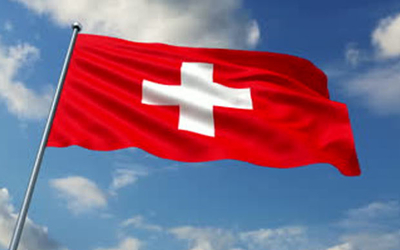More than 2,000 complaints lodged against dentists in the past four years


Coleman Legal Partners has advised clients extensively on the legal principles and methodologies involved in seeking to enforce monetary judgments across a wide range of legal jurisdictions to include the United Kingdom, Europe, and in sub Saharan Africa. The following is a brief summary of the legal principles pertaining to enforcement of judgments in Switzerland.
Enforcement of judgments in Switzerland is governed by the Lugano Convention. Originally when the Lugano Convention was incepted in 1988 there were 12 members of the European Free Trade Association to include Austria, Finland, Iceland, Sweden, Norway and Switzerland. Most of those signatories now have full EU membership leaving only Switzerland, Norway and Finland in the European Free Trade Association. The Lugano Convention is essentially the same as the Brussel’s Convention or even slightly looser in that there are certain derogations afforded to the signatories.
Before going into a brief explanation of the enforcement of judgments in Switzerland, there are always two issues that need to be addressed in the first instance:
1. Where exactly is the defendant’s domicile?
2. If there was a conflict, was there an arbitration clause agreed between the parties?
If the judgment of the foreign court is final and is applicable under the Lugano Convention, it is enforceable in Switzerland. However, if the judgment is a plenary or a provisional one, it may not be enforceable unless the Lugano Convention is applicable. It should be noted where the defendant may be domiciled in the European Union, the Swiss Private International Law (PAL) may be applicable in those circumstances.
Swiss law is not favourable to ex-parte applications. The Swiss courts will only enforce an ex-parte application where the defendant has been properly served. Many lawyers have fallen foul of this rule and indeed this peculiarity of the Swiss courts, where they have gone through lengthy proceedings only to find that the Swiss courts have taken exception to the way in which papers were served in the first instance on the defendant. It is very important that the service of initial papers is done correctly. To be more specific, the Swiss courts look to the Convention on Service of Traditional Documents Abroad dated the 15th of November 1965. Switzerland has also declared their reservation to Lugano Convention so that default Judgments cannot be enforced in Switzerland if the defendant has not been served properly at the beginning of the proceedings, even if the defendant had a chance to appeal the decision.
Needless to say, if the Lugano Convention is applicable, foreign judgment must also be enforced in a state of origin in order to be enforceable in Switzerland.
Foreign money judgment/awards are enforceable. There are two options available;
1. Separate proceedings governed by the Lugano Convention or the Swiss Private International Act (PILA) to attain a declaration of enforceability of the foreign money judgment.
2. Enforceability can be examined as a preliminary question in the main proceedings.
After the declaration or the judgment in the main proceedings had been granted, the ordinary debt collection proceedings can be initiated with the enforceable decision in hand.
Another option is simply to commence the actual debt enforcement proceedings by requesting the issuing of a repayment summons against the debtor. If the debtor objects to the summons, the creditor with the foreign money judgment can, if it is enforceable, obtain a definitive dismissal of the action. The question of enforceability is then examined as a preliminary question or as a separate application indeed in these setting aside proceedings.
Judgments ordering or prohibiting the doing of an act / injunctions are enforceable in Switzerland
Declaratory Judgments are not enforceable in Switzerland but can be recognised by the court in certain circumstances.
In Swiss law attachment proceedings of a foreign judgment is recognisable and enforceable in Switzerland. Such a judgment can entitle the creditor to attach assets to the debtor in Switzerland.
1. The judgment is affecting a legal relationship. In any judgments regarding the making of a declaration of intention are to be excluded from enforcement in Switzerland.
2. Foreign Ex-Parte decisions in declaratory judgments are not enforceable.
3. If the judgment offends public policy in Switzerland, it is unenforceable.
4. No conflict between domestic or foreign judgments exists (in other words if there is a domestic Swiss judgment against the debtor for the same monies) then the foreign judgment is unenforceable.
5. Limitation periods. Where a limitation period has been triggered, it is not a initially examined by the swiss enforcement court but the defending party can raise an objection in this regard. Furthermore, the statute of limitation runs for 10 years in the case of arbitration in Swiss law.
In the case of domestic judgments in Switzerland, the rate of courts interest is 5% per annum. However, the rate of interest for a foreign judgment under the Lugano Convention (if the creditor is entitled to interest) is calculated depending upon the foreign judgment and the foreign law governing the judgment at the time
Fees in Switzerland are governed by federal regulation, specifically on debt enforcement and bankruptcy act (DBA) these fees are generally lower than the fees in the ordinary proceedings.
Under the Lugano Convention, a copy of the judgment which satisfies the conditions necessary to establish its authenticity and the certificate using the standard form in annex five and the Lugano Convention, has to be produced.
Under arbitration (Swiss Private International Law Act (SPIL)), the following documents must be enclosed with the request for enforcement:
1. A completed certified copy of the decision.
2. A confirmation that no-ordinary traditional remedies are available against the decision or that it is final.
3. In case of a judgment by default, a document evidencing that the defendant’s party was summoned in a due form and early enough to have had the opportunity to defend himself.
Generally speaking all documents uttered to Swiss courts must be in one of the officially recognised languages either German, French or Italian. However, if documents are in English, translation is not required in most cases as it is assumed that most Swiss judges speak fluent English and therefore it is not necessary.
Oisín McAsey – 2017

Speak to our Experienced Solicitors
We understand that navigating the legal system can be overwhelming and stressful, which is why we are dedicated to providing clear communication and support to our clients every step of the way